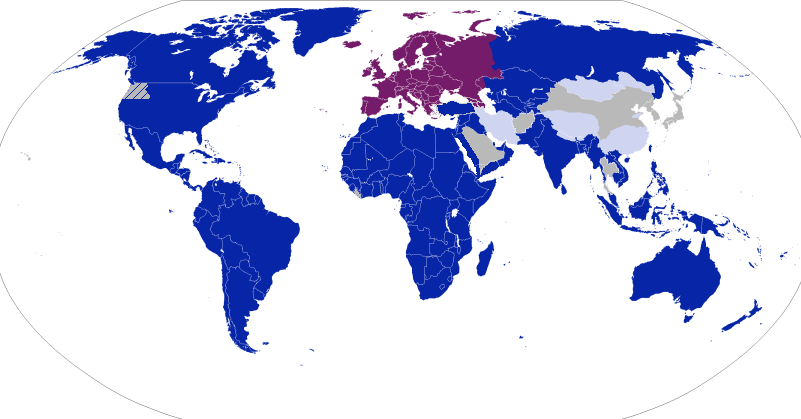That didn't actually happen. What really happened was that successive Chinese dynasties used incentives - like remission from taxes, positions in the bureaucracy, land and so forth - to "civilize" the Miao. Notable signs of civilization included a veneration of ancestors, Confucian learning, proper dress, the adoption of non-Miao languages, and adherence to Han gender and family norms. Sometimes this approach failed as in the "Great Rebellion of 1854-73. But at no stage did the Qing or any other dynasty make a conscious attempt to eradicate the Miao. Sure they beat them in battle and imposed terms designed to ensure peace and kick them along the path to civilization. But for the most part the process was peaceful and it had to be because it's surprisingly hard to inoculate cultural norms through force.
I don't see how this kind of cultural imperialism is "benign", though it's certainly a good deal less
messy than the European model.
I doubt this is an accurate reading of the text, and if it is I'd be highly surprised because it seems improbable.
That is exactly what that chapter says.
I don't think you know enough about the subject matter to draw that conclusion. I also can't think of a single instance in the New World where Europeans actually managed to more or less successfully effect the cultural "conversion" of an entire group of people over a huge area to the extent that China did. I actually can't think of a single instance where Europeans decided to even try to do that on a large scale.
I don't think it's the usability of ammunition for those sorts that's even the problem. I think the problem is that he takes colonization of the Americas an absolute given in the circumstances.
The capability of a society to do something does not imply a lack of culpability. For the last time, just because someone points out the mechanisms by which one culture dominates another, it doesn't mean they are excusing the behavior of the overlord.
Even if we suggest that things were destined to end badly between Native Americans and Eurasians -- which I think is totally true; there's no way that the Columbian Exchange doesn't end in tragedy -- that doesn't suddenly mean it was a-okay for Spaniards to cut off the hands of Tainos, or for Englishmen to start the practice of scalping their enemies in the Dawnlands, or for Americans to systematically rape the women of pretty much every Plains Indian tribe on their way across the continent. There is some abandonment of human agency in that there is
literally no way that a human society -- even a utopian one -- could have made the Columbian Exchange not end with utter catastrophe.
But there's a
huge amount of agency buried within, because the way Europeans used those mechanisms to extirpate and replace their counterparts across the Atlantic is utterly unacceptable. That a European had guns, had caravels, and came across the ocean bearing presents of smallpox and ecological demolition machines is completely understandable, and for the most part can be derived from environmental factors that were out of anyone's control. That, to this day, they have used those guns to force Native Americans onto reservations, or into parallel economic structures, or the forests, or what have you -- that no truly Native society survived past 1900 -- that the way we deal with racism against Native Americans in the USA is to poo-poo the idea that it's even an important issue... all of that is on Europeans, and a million mea culpas on my part or Jared Diamond's part or large segments of the whole race won't fix that.
What his thesis is supposed to do -- and by and large, in my opinion and many others, does do -- is relentlessly attack the idea that one race or the other is intrinsically superior to the other, either based on genetics or culture. To think that in the face of implicitly racist arguments, a geographically deterministic one is somehow "colonial apologism" is absolutely mind-boggling to me.
All this is not to say that large pieces of this argument haven't been made better in other places. The Native American piece, and in particular the disease piece, has been explained a hundredfold better in the popular
1491, while his examination of the ecological factors that enabled European success were done rather better by Crosby in
Ecological Imperialism. But the fact that people continually attack him over very minor differences -- or call him some sort of apologist -- when the major popular alternatives are trash like
Carnage in Culture is irksome.





